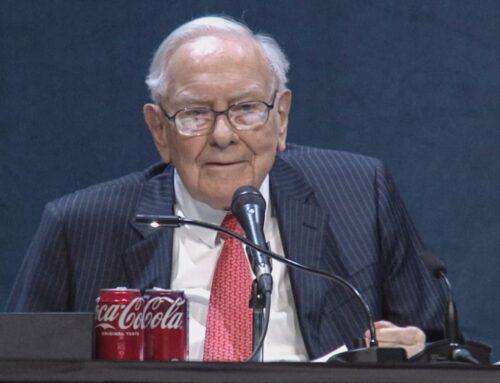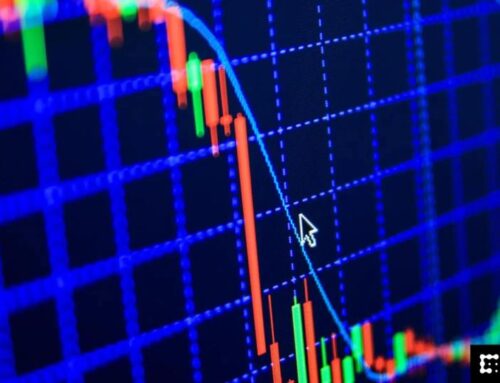This+time%E2%80%99s+not+different%3A+Don%E2%80%99t+let+negativity+bias+affect+investing+st
April 10, 2025
 I’m going to steal a famous thought experiment from Warren Buffett.
I’m going to steal a famous thought experiment from Warren Buffett.
The year is 1910. Rochester’s local startup — Kodak — is growing rapidly. Bausch & Lomb and Gleason too. Our new Public Market on North Union has become a hub for regional farmers and merchants. We’re more “Flower” than “Flour,” thanks to the world-leading greenhouses of Ellwanger & Barry.
Amid this boom time in Rochester, a mysterious character approaches you with an equally odd investment opportunity. He offers to sell you a share in every American company. In essence, they want you to invest in our economy writ large. But he insists you hold that investment for at least 100 years. It’s a long-term mandate.
Alongside this odd directive, the scenario gets even stranger. Somehow, this person describes to you exactly how the future will unfold. He depicts the world that your investment will live through for the next 100 years — the world in which your money will either flourish or flounder. He has scribbled out a list:
1914-1918 — World War I
1918-1919 — Spanish Flu Pandemic
1929 — The Great Depression Begins
1933 — Hitler Rises to Power
1939-1945 — World War II
1947 — Cold War, Nuclear Arms Race
1962 — Cuban Missile Crisis
1973 — Oil Crisis and Stagflation
1974 — Watergate Scandal
1991 — Collapse of the Soviet Union
2001 — September 11 Attacks
2003 — U.S. Invasion of Iraq
2008 — Global Financial Crisis
2020 — COVID-19 Pandemic
To your 1910 Rochester brain, this list has no meaning. Hitler? Missile crisis? “Stagflation”?
But with the benefit of hindsight, we know how consequential each event on this list was to American history. We know the fear and uncertainty caused by these events. And that’s where today’s thought experiment is challenging. Sitting here in 2025, knowing full well how history played out, it’s hard to forget what we already know.
But give it a try.
If you knew 20 million people would die in World War I, and another ~30 million (estimates vary) from the Spanish Flu pandemic, would you purchase this mystery man’s investment? What if you knew the world’s greatest powers would build a nuclear arsenal that could end life on Earth? Or that multiple crises would grind the global economy to a halt?
Would you knowingly invest in an economy about to go through those events? The point is clear. We could be forgiven for thinking the world’s illness, violence, corruption, etc., would make for a terrible investment opportunity. When these events occurred, some people thought the world would end. They thought, “This time, it’s different.” This war, this pandemic, this depression is fundamentally different — and fundamentally worse — than anything humanity has been through before.
But this entire thought experiment belies a critical human bias. Negativity bias is the tendency for humans to pay more attention to negative experiences, emotions, or information than positive ones. Bad things feel stronger than good things. A single criticism can outweigh multiple compliments. Losses feel worse than equivalent gains. And bad news — like war and pandemic — can overshadow good news.
In fact, our mystery man only mentioned adverse events. He didn’t mention penicillin (1928), DNA (1953), or polio, smallpox, and countless other vaccines. He didn’t discuss the proliferation of internal combustion vehicles, the moon landing (1969), the World Wide Web (1989), or countless other technological advances. He didn’t mention any extraordinary outliers — there are too many to count. For example, did you know agricultural researcher Norman Borlaug is credited with saving over one billion lives by himself, thanks to vastly increasing crop yields in Third World countries? Most people have never heard of Norman Borlaug. That’s Negativity Bias at work.
On balance, did positive progress outweigh these negative events? Despite the wars, famines, pandemics, natural disasters, and all the other terrible curveballs, both the American economy and the global economy grew by roughly 20x in the 20th century. Both the American population and the global population grew by 3.5–4x.
And the stock market? If you had invested $1.00 in the U.S. stock market in 1900 (assuming you could spread that $1 evenly across the market), it would be worth $140,000 today.
Despite everything bad, human innovation marches on. Despite every hiccup, the economy moves forward. And despite a constant stream of bad news, the long-term investor has been handsomely rewarded — so long as they stayed the course.
2025 has been a chaotic year, whether you’re an investor or not. And I’ve heard plenty of people utter Sir John Templeton’s “four most dangerous words in investing”:
This time, it’s different.
But history suggests otherwise. Not that bad things won’t happen — because they will — but that progress has consistently outpaced disaster in the long run. Human ingenuity, resilience, and the relentless push forward have been the real story.
History doesn’t move in a straight line. It zigs and zags, lurches and stalls, sometimes feeling like it’s breaking apart entirely. And yet, through it all, progress prevails.
The past 125 years have seen moments of absolute chaos — some of which seemed, at the time, like the beginning of the end. But they weren’t. They were just chapters in a much longer story. A story where innovation, resilience, and human ingenuity have consistently won out.
So, will 2025 be the moment when everything truly falls apart? Maybe. But if I had to place a bet — if I had to take the deal that our mysterious investor offered — I know exactly what I’d do.
I’d take the bet. And I’d let time and human progress do what they always have.
This column is a collaborative effort between Patricia Foster and Jesse Cramer. Jesse is a Client Relationship Manager with Cobblestone Capital Advisors, LLC, and the host of “Personal Finance for Long-Term Investors” and “The Trusted Partner Podcast.” Patricia is a securities law attorney whose experience includes representation of clients in both registered and exempt securities offerings, as well as in various sectors of the financial services industry, including broker-dealers, investment advisers and investment companies. The information in this column is provided for educational purposes and does not constitute legal or investment advice.
d
Search
RECENT PRESS RELEASES
Related Post



